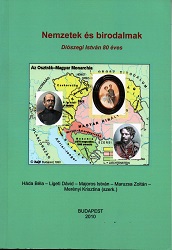
We kindly inform you that, as long as the subject affiliation of our 300.000+ articles is in progress, you might get unsufficient or no results on your third level or second level search. In this case, please broaden your search criteria.



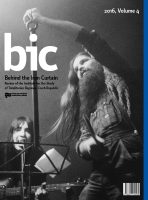
Adolf Hitler wrote that ‘it is impossible to let the incurably ill continue infecting the healthy’ in Mein Kampf as early as in 1924. Three years later, he mentioned the eugenic killing of newborns in his speech at the National Socialist German Workers Party (NSDAP) rally in Nuremberg: If Germany gains one million children and gets rid of the 700,000 to 800,000 weakest individuals every year, it should emerge stronger ultimately. The greatest hazard for us is not enabling the natural selection process, thus losing the possibility of gaining capable individuals.
More...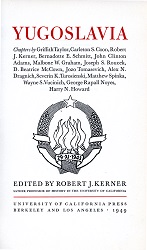
Although Yugoslavia was a member of both the Little Entente and the Balkan Entente and had been allied with France since 1927, by the time of the outbreak of the Second World War, in September, 1939, the Yugoslav government—whatever the sentiments of the people—was already oriented in the direction of the Axis. After 1935 especially, commercial relations with Germany had been intensified; in 1937 the political ties with Bulgaria and Italy were strengthened. In spite of this orientation, however, Germany and Italy, especially the latter, seem to have been moving toward a policy of partitioning Yugoslavia when the opportunity arose, although there were reassuring words during the visits of Premier Stojadinović to Berlin and Rome and of von Neurath, the German Foreign Minister, to Belgrade. The so-called Munich Agreement of September 29-30, 1938, constituted a major landmark in the development of Germany’s policy toward southeastern Europe and in the orientation of Yugoslavia itself.
More...
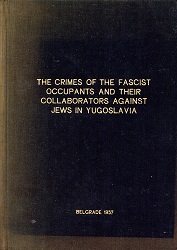

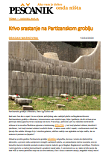
Kad sam čuo da su opet i to za vrijeme policijskog sata razbijali ploče na Bogdanovićevom Partizanskom groblju u Mostaru, istovremeno sam osjetio tugu, bijes i gađenje, da bi mi kao prva pomisao došla pjesma Krivo srastanje od Azre. Preciznije, pomislio sam na nekoliko konkretnih stihova iz te mračne Štulićeve pjesme s istoimenog albuma: „I svi tvoji plaćeni nitkovi, doušnici i sjecikese, i svi tvoji mutavi urlatori zvučnih titula… a talon nose ružni i opaki, s nečuvenom moći da tjeraju što zažele. Mnogo ih je i strašno galame, obično razbiju sva ogledala na koja naiđu, da ne ostane ni pomen na ljepotu“.
More...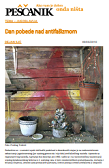
Podsetimo se – sramotni srpski zločinački poduhvat iz devedesetih stajao je na nedvosmislenom odbacivanju jugoslovenskog (jer srpskog gotovo da i nije bilo) antifašističkog nasleđa. Uporedo sa negiranjem tog nasleđa, najmanje dve decenije pre 1990. radilo se i na revizionističkoj revalorizaciji srpskog kolaborantskog fašizma iz 2. svetskog rata. U tom revizionističkom pretumbavanju, izvrtanju i brisanju činjenica, umesto sada prokazanih partizana, četnici postaju simbol antifašizma a izdajnički zločinački Nedićev režim vidi se kao mudri i praktično jedini ispravni odgovor „biološke supstance srpskog naroda“.
More...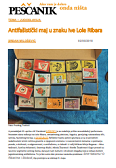
U ponedeljak 23. aprila u KC Parobrod odigran je za ovdašnje prilike nesvakidašnji performans. Povodom dana rođenja Ive Lole Ribara, omladinskog aktiviste, ilegalca, partijskog rukovodioca KPJ, ratnika, Narodnog heroja, u produkciji Reflektor teatra petoro glumaca je sa izvanrednim nadahnućem Ivinim rečima govorilo o njegovom vremenu i o svevremenim temama: o poimanju pravde, o dužnosti, o odgovornosti, o antifašizmu, o slobodi. U režiji Milene Minje Bogavac – Nina Nešković, Sunčica Milanović, Strahinja Blažić, Nikola Živanović i Đorđe Živadinović Grgur proveli su nas kroz segmente Lolinog života, darujući nam kulturni i društveni događaj koji je odisao duhom jugoslovenskog antifašizma. To je bio samo deo procesa nastanka predstave Smrt fašizmu! O Ribarima i Slobodi, čija premijera se očekuje 9. maja.
More...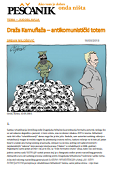
Sudska rehabilitacija četničkog vođe Dragoljuba Mihailovića predstavlja formalnu potvrdu nečega što se već odavno dogodilo u javnosti. U tom smislu, ona ne donosi nikakvu bitnu novinu. Mihailović neće biti ništa “rehabilitovaniji” danas nego što je bio juče. Doduše, sam autoritet sudskog rešenja o rehabilitaciji mogao bi možda negde da predstavlja izvesnu težinu, kada to rešenje ne bi bilo još jedan bizarni uradak posrnulog srpskog pravosuđa, sklepan na osnovu jednog od najbesmislenijih i najskarednijih “zakona” koje poznaje istorija prava (“Zakon” o rehabilitaciji iz 2006. godine). Pogledajmo samo jedan primer: šta je to što, sa “čisto formalne strane” (koja, kako nas uverevaju, jedino zanima sud) razlikuje sudski proces koji je u Beogradu vođen protiv nacističkog generala Aleksandra Lera od sudskog procesa vođenog protiv Dragoljuba Mihailovića? Suštinske razlike nema. A šta deli rečenog nacističkog generala od sudske rehabilitacije u Srbiji, po istim kriterijumima po kojima je rehabilitovan Mihailović? Zaista, samo jedna sitnica – nije imao “prebivalište na teritoriji Republike Srbije”.
More...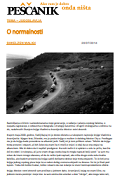
Razmišljanja o ličnim i samoobmanama moje generacije, o rađanju i jačanju srpskog fašizma, o raspadu Jugoslavije, o odlascima iz Beograda i strategiji karantina i drugim strategijama u odnosu na zlo, nadahnutih čitanjem knjige Vladimira Arsenijevića Mexico: ratni dnevnik.
More...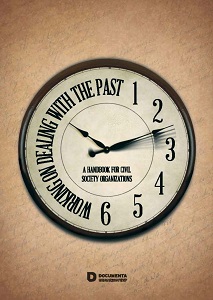
This handbook offers only some of the possible answers to the question how to deepen the discussion on the past in polarized societies where denial and/or relativization of crimes is an everyday practice and where one can hear exclamations such as "There is only one truth!" more often than questions "What has happened to you and your family?" The pages you are reading have been written for all those who have doubts and question a black-and-white picture of a 'better past', subject to adjustments and polishing in order to makes 'us' look more positive and 'them' negative. The handbook deals with some of the possible ways in which facts can be documented, suffering of every victim and survivor acknowledged and dignity of every person respected. The idea for publishing this handbook was born on my way to Canada where I was supposed to present the process of dealing with the past in Croatia and the neighbouring countries, from my own perspective, to colleagues from both North and South America and other continents. Interest into our experiences, expressed by ancestors of children who were taken from Indigenous peoples’ villages near Vancouver, with "the best intentions of better education", as well as by artists from Colombia who work with traumatized families of the killed and missing and by priests who are preparing a truth commission in Burundi, but also positive reactions from Bjelovar, Pakrac, Osijek and Sarajevo, encouraged us to write this handbook. National Foundation for the Development of Civil Society also recognized the importance of learning through exchange of experiences and supported this handbook. Texts in the handbook describe experiences of people who have, for decades, been trying to find ways in which to talk about hidden, unpleasant facts and crimes committed in their neighbourhood. The authors have gathered in initiatives such as that for the return of the name of the Victims of fascism square in Zagreb or Antiwar campaign Croatia and started organizations such as Centre for peace studies, Delfin, Pravda and MIRamiDA Centre. In an attempt to initiate the process of dealing with the past and to establish a fact-based truth about the war and contribute to shifting public discussion from the level of dispute about facts towards a dialogue on interpretations, these organizations founded Documenta – Centre for Dealing with the Past (hereafter Documenta). It was established in order to systematically deal with violence inherited in the period since the beginning of the Second World War until today. The key reason for making this effort was experience in silencing and forging war crimes and other war events in the period from 1941 until 2000, which has affected the recent history of Yugoslavia, but also of post-Yugoslav states and societies. During their work, the authors have opened questions which are, at the same time, difficult and important for everyone. Experiences which they have documented cannot be implemented universally, but can perhaps serve as an inspiration for opening up the dialogue about the past and about the adequate ways of remembering those killed in different locations. Since they are aware that there are no uniform recipes for thinking about the past and selecting the way in which to discuss difficult issues, they sometimes start from their own position and position of their own family, and sometimes point to global problems. The order in which you choose to read the text is not important. Regardless of whether you choose to first read about personal, family, institutional or social sphere, the texts will lead you to taking a stand towards violence in all spheres. Considering the fact that we still live in exclusive societies in which security is often based on closing oneself in a group of people of the same nationality and/ or those who think alike and who do not refrain from radical nationalism, ideological exclusiveness, degrading people of different nationality, making fun of ideological opponents or denying facts on committed war crimes, our starting point, in the work we do, was acknowledgement and emphasis of human dignity of those who were killed, suffered or were abused, regardless of the side on which they found themselves due to their belonging, geography, choice or political beliefs. The same values may also be your own starting point. Since respect of dignity and equal rights is the foundation of freedom, justice and peace, all human beings are born free and equal in dignity and their rights, as stipulated in the Preamble and Article 1 of the Universal Declaration of Human Rights, adopted at the UN General Assembly on December 10, 1948. While a struggle for recognition of rights which are stipulated in this declaration is still going on, we can ask ourselves how many more decades will need to pass in order for the ‘new’ rights to truth, just court proceedings, reparations and guarantee to non-repetition of crimes, which are being affirmed within the U.N. in the past ten years, to become a worldwide recognized standard? Even if we are talking about a century of advocacy, we should not be discouraged by the slowness of changes, because taking a stand to violence on an every-day basis means a lot to those who have been hurt. Even in times of dictatorships, the destiny of those who suffered becomes visible only when others, outside one’s family circle, recognize it as such. Building mutual trust after a war and conflicts is connected to the acknowledgement of victims’ past suffering, and in Croatia and other post-Yugoslav countries, contemporaries of three cycles of violence, the Second World War, post-war violence over political opponents and the 1990s wars, are still alive. The decision on how far in the past one should go when conducting research is not an easy one. In social processes of dealing with difficult past violence, it is not easy, and sometimes even impossible, to single out only one group of crimes, especially in disputes which touch upon traumatic experiences of participants themselves. Every initiative for deepening a dialogue about the past will decide what would be a relevant period in the context of its own country. In countries with the history of colonialism or slavery, it will, for example, be necessary to take into account more layers of history. In this handbook, the authors primarily use examples from Croatia regarding three layers of the past, the contemporaries of which are still alive. In other countries, it will perhaps be possible to focus only on the last cycle of violence or it will be necessary to look back a couple of centuries back, for example to the period when colonization started. In our work thus far, it has become clear that personal, family, institutional and social dealing with the past is not only important for the protection of rights of those groups which suffered during wars or political violence, but is also important for the process of civilizational development of a society as a whole. Open, inclusive societies in which horizontal communication about all, even unpleasant topics, is encouraged, are more successful in every respect. When working through a trauma, through dealing with the past, we affirm inclusiveness and openness of a society, as a general good which should be protected. However we engage in the process of dealing with the past, it will demand from us to condemn spreading of hatred. Regardless of whether we decide to have private conversations within our own homes or to critically examine the most important decisions adopted by government institutions, the first step we make could be to condemn violence. It is less important whether this condemnation will influence our relationship with ourselves and our closest family members or whether we find a way to express this condemnation by critically commenting on the world around us. What is important is this essential step of condemning all forms of violence. The scope of your intervention, research or action will depend on your ability to include and motivate others. It is not important whether the initiative will start from one person’s wish to document his/her memories for future generations1 , from a conversation between two worried individuals2 or from years-long preparations of experienced organizers for founding a researchdocumentation centre which would systematically monitor trials and document human losses. In moments of revolt caused by a general lack of respect for values that you find important, decisions on taking action will be made in a second, while decisions on starting new organizations may take several years. But before diving into an examination of methodology, the question that should first be asked is the one about the purpose of dealing with the past. One of the possible answers, which has emerged throughout the work of human rights organizations, is that dealing with the past lessens the burden of the past, which stalls complete development of societies affected by war and political violence. Only by revealing systematically hidden and silenced information on human suffering and by gradually accepting facts about committed crimes are we creating a chance for personal and social healing, as well as providing space for realizing the rights of young people on learning about fact-based history. Emina Bužinkić, Igor Roginek, Goran Božičević, Ana Bitoljanu and Vesna Teršelič are the editors of this handbook. It contains texts on factography of suffering, recoding of personal memories, preparation of public advocacy and war crimes trials monitoring. We believe the handbook to abound in different styles, approaches, language and experiences and hope you will find it helpful.
More...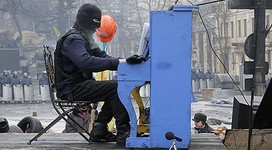
Protiv režima predsednika Viktora Janukoviča prvo su se pobunili studenti prošlog novembra na Majdanu, centralnom gradskom trguu Kijevu. To su Ukrajinci koji imaju najviše da izgube, mladi ljudi koji sebe bez puno razmišljanja smatraju Evropljanima, koji za sebe žele evropski život u evropskoj ukrajinskoj domovini. Mnogi od njih su levičarskih uverenja, neki od njih su čak i radikalni levičari. Posle godina pregovora i meseci obećanja, ukrajinske vlasti pod predsednikom Janukovičem u poslednjem trenutku odustale su od potpisivanja jednog od glavnih trgovinskih sporazuma sa Evropskom unijom.
More...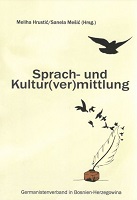
This contribution examines two recent forms of fictionalisation of the legal reappraisal of National Socialist crimes: Der Fall Collini (2011) by Ferdinand von Schirach and Deutsches Haus (2018) by Annette Hess. Recently, a focus on Fritz Bauer, the initiator of the Auschwitz trials, can be observed in works that address the trials of National Socialist crimes. The novel Deutsches Haus should be seen in the context of these cinematic representations: It thematises the first Auschwitz trial. The protagonist is the young interpreter Eva Bruhns, who happens to step in shortly before the start of the trial to translate witness statements from Polish. The novel makes the trial and its procedure as well as the reactions of society at the time vivid and shows the involvement of "normal" people in the crimes. The novel Der Fall Collini takes up one of the biggest judicial scandals of the Federal Republic: Due to the change in the statute of limitations, many trials could no longer be held, so that the crimes remained unpunished.
More...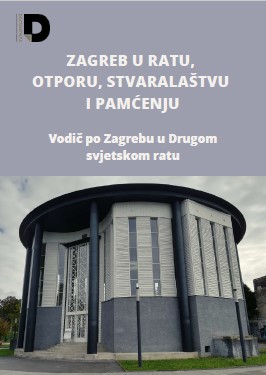
Pred vama je vodič po Zagrebu kojim želimo olakšati upoznavanje nekih ključnih mjesta stradanja i otpora u Drugom svjetskom ratu. Sažeti opisi povezuju povijesna istraživanja, odabrane ulomke iz književnih djela, dnevnika i osobnih sjećanja. U trenutku kad polako odlazi generacija koja je preživjela vrijeme najgoreg terora u povijesti grada nastojali smo stvoriti što više prostora za riječi i zapise svjedoka vremena i protagoniste povijesnih događanja. Razvoj ove publikacije podržalo je Veleposlanstvo Sjedinjenih Američkih Država u Republici Hrvatskoj, u sklopu programa "Osporavana povijest: novi pristupi obrazovanju o holokaustu". Documenta se pitanjem prezentacije ključnih događaja 20. Stoljeća bavi od svog osnivanja, tražeći najbolje načine približavanja prošlosti novim generacijama. Neki dosadašnji poduhvati uključuju obilazak mjesta sjećanja, počevši od 2010. i dokumentarnog filma Documenta Memoriae – Zagreb, redateljice Dijane Mlađenović dostupnog online na ovoj poveznici. U sagledavanju mjesta sjećanja i otkrivanju novih mogućnosti komemoriranja žrtava, posebno nas je poticao Saša Šimpraga, autor koncepta Virtualnog muzeja Dotrščina, s kojim od 2012. Sudjelujemo u organiziranju godišnjih memorijalnih intervencija dostupnim na poveznici www.dotrscina.hr. Paralelno s događanjima u prostoru parka, u javnom prostoru Trga bana Jelačića u rujnu 2012. mogao se razgledati prvi postav Virtualnog muzeja Dotrščina na temu Pisci I publicisti ubijeni na Dotrščini čija je autorica bila Nataša Mataušić, muzejska savjetnica Hrvatskog povijesnog muzeja.
More...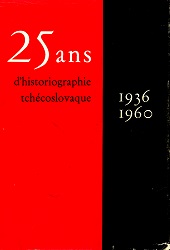
The period of the Second World War is one of the most tragic and at the same time one of the most dramatic epochs in the life of the peoples of Czechoslovakia. Nazi aggression took me to the physical existence of the Czech and Slovak nations. The Czechoslovak people rallied their struggle for national liberation to the efforts of all the democratic forces of the world. The liberation of Czechoslovakia by the Red Army enabled the Czechoslovak people not only to realize their ideals of national freedom but also to acquire their social liberation. The historical significance of the liberation of Czechoslovakia in 1945 lies precisely in the creation of the preconditions for the transformation of the capitalist order into socialism.
More...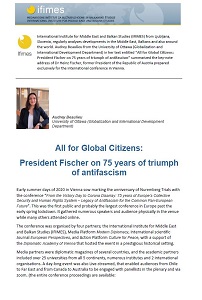
Early summer days of 2020 in Vienna sow marking the anniversary of Nuremberg Trials with the conference “From the Victory Day to Corona Disarray: 75 years of Europe’s Collective Security and Human Rights System – Legacy of Antifascism for the Common Pan-European Future”. This was the first public and probably the largest conference in Europe past the early spring lockdown. It gathered numerous speakers and audience physically in the venue while many others attended online.
More...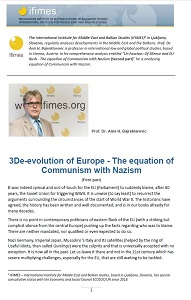
It was indeed cynical and out-of-touch for the EU (Parliament) to suddenly blame, after 80 years, the Soviet Union for triggering WWII. It is unwise (to say least) to resurrect the arguments surrounding the circumstances of the start of World War II. The historians have agreed, the history has been written and well documented, and is in our books already for many decades. There is no point in contemporary politicians of eastern flank of the EU (with a striking but complicit silence from the central Europe) pushing up the facts regarding who was to blame. There are neither mandated, nor qualified or even expected to do so.
More...